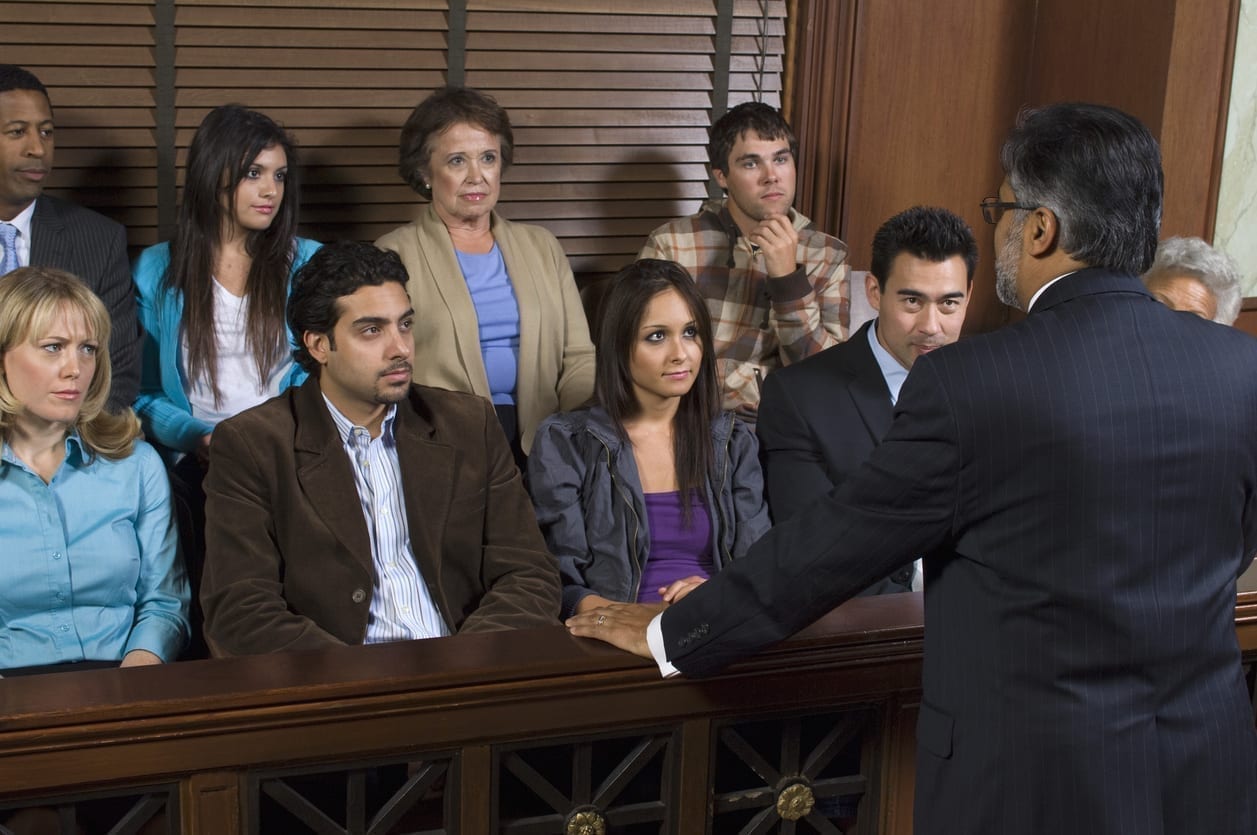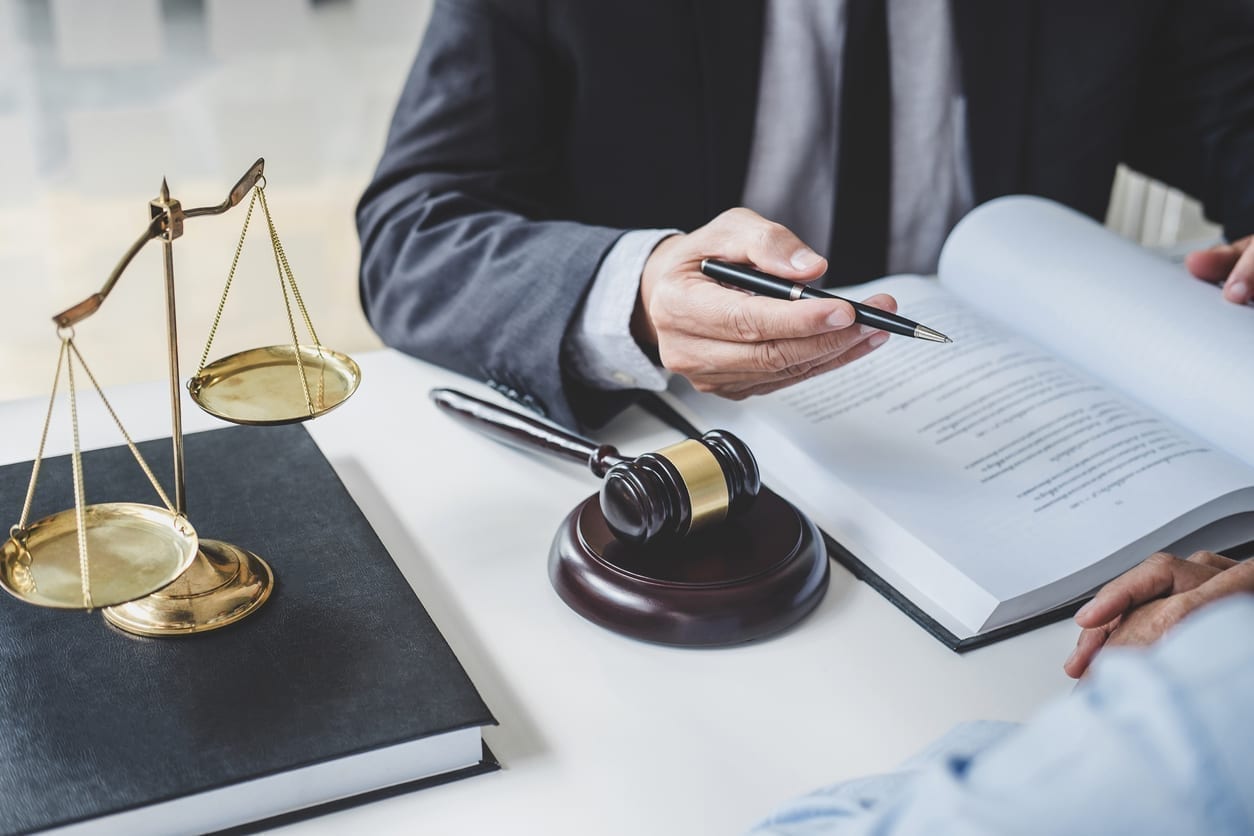The Sixth Amendment includes many important protections that apply during criminal trial. Examples include the right to a speedy, public and local trial. They also include the right to notice of the charges against you and the right to confront witnesses. They further include the right to a jury of your peers and the right to a lawyer. In short, the Sixth Amendment preserves your right to a fair trial.
What the Sixth Amendment says.
In all criminal prosecutions, the accused shall enjoy the right to a speedy and public trial, by an impartial jury of the state and district wherein the crime shall have been committed, which district shall have been previously ascertained by law, and to be informed of the nature and cause of the accusation; to be confronted with the witnesses against him; to have compulsory process for obtaining witnesses in his favor, and to have the assistance of counsel for his defense.

What the Sixth Amendment means.
The Sixth Amendment sets forth many rights that apply when you are accused of a crime. It includes the following:
- A Speedy Trial. The government must bring your case to trial in a timely manner. It cannot delay your case without good reason.
- A Public Trial. The government must also conduct your trial in public. Public trials make sure the case is fair and transparent.
- A Fair Trial. The Sixth Amendment also provides you the right to a trial by jury. This means that a group of people from your community, not just a judge, can decide whether you are guilty.
- Right to Counsel. The Sixth Amendment also gives you the right to a lawyer in all criminal cases. If you cannot afford a lawyer, the judge will appoint one for you. They could appoint a public defender or a private attorney that takes court-appointed cases.
- Notice. This amendment also requires that the government give you notice of the charges against you. This is to make sure that you can present a defense.
- Confronting Witnesses. Finally, you have the right to “confront” the witnesses against you. This means that you can usually see them and ask them questions.
How Sixth Amendment rights apply to people in prison.
You always have Sixth Amendment rights — even in prison. However, these rights might not apply the same way as they do on the outside. For example, on the outside, you have the right to a speedy trial. That does not mean, though, that you have the right to a speedy hearing on in-prison discipline. The timing on those hearings depend on prison rules and policies.
You also do not have the right to a jury when it comes to hearings on rule violations or even parole. The people deciding your fate will not be your peers. Instead, they will be prison officials. However, you do still have the right to notice of the charges against you when prison officials accuse you of breaking a prison rule. You also have the right to present a defense, including your own evidence and witnesses.
You also keep your right to a lawyer when you go to prison. But it is not as easy to talk to your lawyer from inside of prison as it is on the outside. Many prisons have rules about when you can use the phone, when you can receive mail and more. This can feel like a limit on your right to a lawyer.

What you can do if prison officials violate your Sixth Amendment rights.
You do not lose your Sixth Amendment rights after a criminal conviction. This amendment protects your rights to fair legal processes. Even if you are in prison, officials cannot take this away from you. If prison officials monitor your phone calls or mail with your lawyer, they could be violating your Sixth Amendment rights. If a district attorney doesn’t bring you to trial on other charges in a timely fashion, this could be a violation as well, even if you were in prison during that time. And, if officials violate your Sixth Amendment rights, you can file a lawsuit against the government.
The Takeaway:
A criminal conviction can impact your Sixth Amendment rights. But you do not lose them — even in prison. You still have the right to a public jury trial, a lawyer, notice and to ask questions. If government officials violate these rights, you may be able to file a lawsuit.






